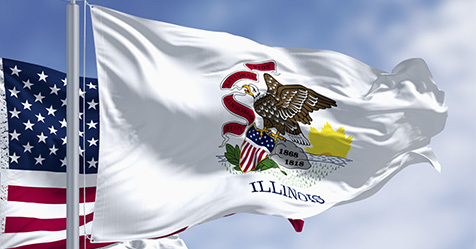Record Number of West Nile Virus Infected Mosquitos Plaguing NYC
Two human cases of West Nile virus have been recently reported.
According to a statement by the New York City Department of Health and Mental Hygiene, its boroughs are experiencing a record number of mosquitos infected with the West Nile virus, with two human cases of infection recently reported in Queens and Brooklyn.
Across all five of the city’s boroughs, 1,068 mosquito pools have tested positive for the virus versus 779 positive pools this time a year ago.
The NYC Health Department reports that mosquitoes infected with West Nile virus are typically present in the city from July through October, with peak activity during August and September.
West Nile virus was first detected in New York City 21 years ago. Over the past decade, an average of 16 people per year have been diagnosed with West Nile neuroinvasive disease (WNND) in the city; their median age was 62 years, and the case fatality rate was 14% (23 deaths).
In the United States, a total of 54 cases of West Nile virus, including four deaths, have been reported this year by the U.S. Centers for Disease Control and Prevention (CDC).
How Facilitators Can Combat West Nile Virus
According to the CDC, there are a number of things building managers and facilitators can do to protect their building’s visitors, inhabitants, and workers from mosquito-borne diseases.
Eliminate standing water.
Some mosquitoes lay eggs in or near standing water. Decrease the numbers of mosquitoes by:
- Removing, turning over, covering, or storing outdoor equipment
- Removing debris from ditches
- Filling in ruts and other areas that could collect standing water
- Removing tires, buckets, bottles, and barrels that could collect water
- Placing drain holes in containers that collect water and cannot be discarded
- Treating ponds and other water features on the property.
Properly maintain doors and windows.
Keep mosquitoes outside by ensuring that doors and windows have undamaged screens, close completely, and are kept closed whenever possible.
Provide training to employees.
Make sure your employees know the following:
- The risk of mosquito bites and how to prevent them
- The symptoms of mosquito-borne diseases
- The safe use of insect repellents.
Give employees what they need.
- Provide workers with and encourage them to wear clothing that covers their hands, arms, legs, and other exposed skin.
- Consider providing hats with mosquito netting to protect the face and neck.
- Provide U.S. Environmental Protection Agency (EPA)-registered insect repellent with one of the active these ingredients: DEET, picaridin (known as KBR 3023 and icaridin outside the United States), IR3535, oil of lemon eucalyptus (OLE), para-menthane-diol (PMD), or 2-undecanone.
- Provide permethrin for application to clothing and gear.
Consider professional pest control services.
If you, as a facilitator, lack either the knowledge or the time to fight the surrounding mosquito population, consider calling on third-party professionals to tackle the task. According to an article by Forbes, pest control professionals often employ a “broadcast treatment” as an effective means of getting rid of mosquitos. A repellent spray is applied to the outside area, and the results can last for months.


